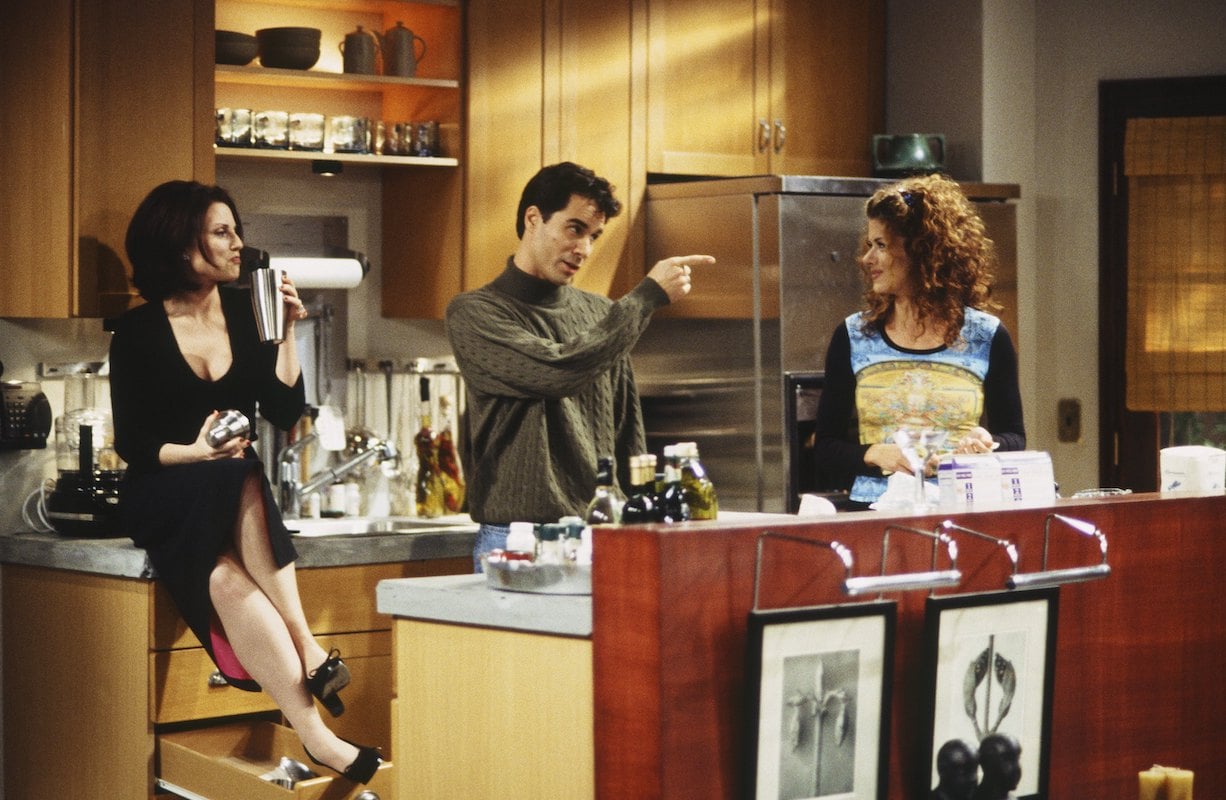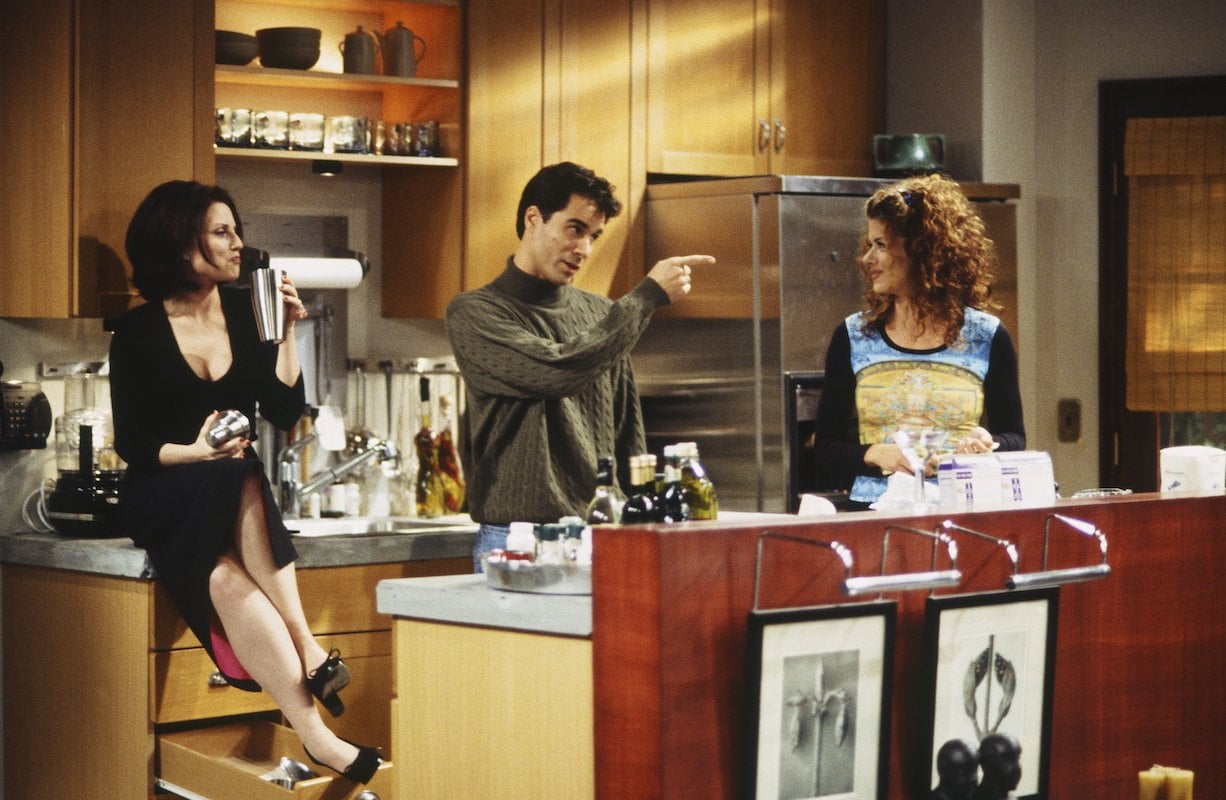
How ‘Will & Grace’ Got Away With Its Body Part Innuendo
The NBC comedy Will & Grace just ended its second life as a revival series in 2020. From the moment it began its first like in 1998, Will & Grace was groundbreaking. Throughout Will & Grace, innuendo was fair game. Looking back on the landmark series, director James Burrows knows exactly why the show got away with so much of the edgy humor it did.

Burrows was a guest on Rob Lowe’s Literally! podcast on Sept. 14. While discussing his book, Directed By James Burrows, Burrows told Lowe some of his sitcom stories directly. Here’s one about his experiences directing Will & Grace.
‘Will & Grace’ was an LGBTQ milestone
Ellen Degeneres came out on her ABC sitcom, Ellen, in 1997. The show only lasted one more year. But, the fall following Ellen’s last spring, NBC premiered Will & Grace. The premise was best friends Will (Eric McCormack) and Grace (Debra Messing) are roommates. Will is gay and Grace is straight. Both have comedic romantic foibles throughout the series.
Will is also friends with Jack (Sean Hayes), a flamboyant gay man. The show was a landmark for LGBTQ representation on a primetime network sitcom. Will and Jack remained beloved TV characters for the show’s first eight seasons, and welcomed back for the 2017 revival. But that’s not all Will & Grace did for television.
‘Will & Grace’ innuendo pushed the boundaries of network language
Network television is still regulated by the Federal Communications Commission. There are limits to language that is allowed over federal airwaves, although it has relaxed to include profanities like damn and, thanks to NYPD Blue, sometimes harsher language. Sitcoms like Seinfeld and Friends began experimenting with sex talk by way of clean euphemisms, but Will & Grace took it to another level.
“That show was the king of euphemisms for body parts,” Burrows said on Literally!. “It was just wonderful in the writers room to hear them come up with different phrases for bodily parts.”
The reason the FCC didn’t come down on them
Will & Grace was still careful to respect FCC law. NBC’s standards and practices department would ensure that. But, it wasn’t simply a matter of coming up with clean words for genitalia. Burrows said it was the characters of Will, Grace, Jack and Karen (Megan Mullally) that empowered them to get away with suggestive language.
“It’s the funniest show I’ve ever done,” Burrows said. “Laugh per page, oh my God. Jokes on that show you couldn’t do on any other show. I mean, we could get away with so many things because that show was a little heightened reality. And it was four really innocent people saying dastardly things. But because they were innocent, because you understood their plight, we got away with it.”


